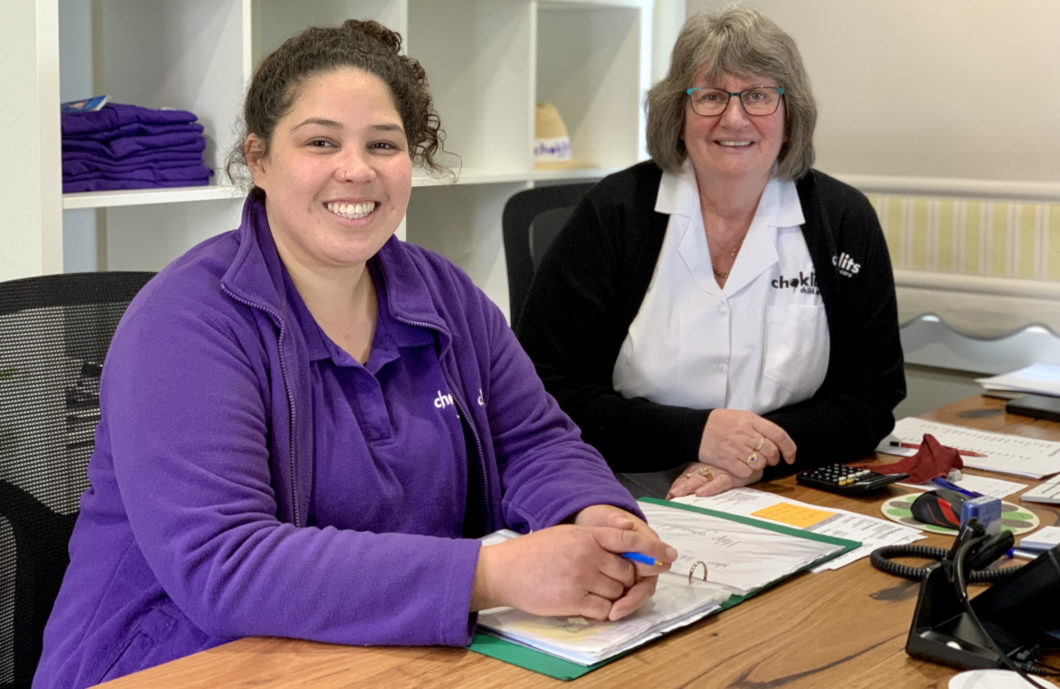An integral aspect of living in Australia is learning about Aboriginal and Torres Strait Islander culture. When we, as early childhood educators, plant seeds of knowledge for the youngest of our learners, we hope that we will nurture their respect for and understanding of First Australians, the people who have lived on this land for more than sixty thousand years.
Over the last few years, as a team, we’ve been expanding our knowledge about Aboriginal and Torres Strait Islander perspectives and how we represent our knowledge at Choklits. This begins with an examination of our own personal beliefs, then our beliefs as educators, before engaging with others, sharing our learning and understanding the children through learning experiences. It is not a linear journey, and often circles around in the space of learning, unlearning, and relearning.
The path is one that can’t be walked alone; it takes many different connections and relationships from the community to add their voices and share understandings. This can be a sensitive topic, as often there are strong emotions, deep trauma and ongoing healing in the space of sharing and understanding the truth of the past and present and its effects.
As we developed our own knowledge, we wanted to make sure that we were including and listening to the voices of people who were directly affected by these perspectives. For us at Choklits, this has included connecting with our families, community groups and organisations and inclusion support, consulting with artists, networking with other early learning services and engaging with professional development opportunities.
One of the connections we made was through a grant project from the community organisation EACH, about visible demonstrations and representations of Aboriginal and Torres Strait Islander culture (which you can read about here). The Choklits team came together to share visions and intentions, leading to many sparks of possible ideas and enthusiasm for how we could show our commitment to embedding visible First Peoples’ experiences at Choklits.
During our brainstorming process, we identified that we had the opportunity to develop a longer term vision beyond the grant project. We realised that with a defined goal, we could foster further progress with a sustainable plan that reflected our philosophies, intentions and vision. When we learnt of Reconciliation Australia and their Reconciliation Action Plans (RAPs), we recognised a great opportunity to take the next step in our journey to cultural inclusion and safety. A Reconciliation Action Plan would support and guide us to identify actions as part of demonstrating commitment to Aboriginal and Torres Strait Islander histories, cultures and contributions.
The relationships we’ve developed and feedback we’ve had from our connections on this journey reminded us of the ways in which Aboriginal and Torres Strait Islander culture is embedded throughout the Choklits childcare centre, in the artwork displayed, our learning program, the experiences offered to children and our visible resources. Developing a RAP would formalise our commitment and give us another source to build on our knowledge so that our growth continues.
The RAP itself is a working document which helps the Choklits community identify and understand our own cultural identity. It ensures that Aboriginal and Torres Strait Islander perspectives are embedded and accurately represented in everyday practices, and that Choklits is a culturally safe place for everyone to attend.
The RAP, the structure of which is provided by Nurragunawali, is a program developed by Reconciliation Australia to support schools and early learning services to construct environments that foster knowledge and recognition of the value of Aboriginal and Torres Strait Islander perspectives.
To dive deeply into the RAP, a Choklits working group was formed. This team collaborated on ways to implement reconciliation initiatives, reflecting on our current reconciliation abilities and how we could improve them. Over the course of a year, amid-COVID and lockdowns, we thoroughly examined our practices and understandings, writing a vision for reconciliation and progressing through the relevant actions within the RAP.
The RAP is made up of 40 actions, each of which are implemented through ‘deliverables’; the strategies and steps to address the actions. Each action falls into one of three categories: relationships, respect and opportunities, and each of the categories are further broken down into the classroom, school or community. We reflected on which actions would be our focus, aligning them with our current understanding, what we do well and where we could improve our engagement. With critical reflection, one of the foundations of our Choklits philosophy, we examined where there was room for us to build on our existing knowledge and practices. Not only do we want to acknowledge the things we do well at Choklits, we also want to make sure we seize opportunities to learn and grow as we evolve.
The Nurragunnawali platform offers guidance to work through each of the actions, providing a clear process to comprehensively create a commitment with actions along the way. We took advantage of the many resources provided to create the deliverables for each of the actions we chose to focus our attention on.
The process was intricate and encompassed consulting the stakeholders involved. The questions that arose, and our natural drive to further our knowledge, meant that we continued to build connections and relationships with groups and people who could offer rich insights to our practices. Over several months, we selected the actions which would align best with what we wanted to achieve and the direction of growth the Choklits team wanted to take.
By September 2021, we were very excited to have reached the stage of submitting our RAP to Reconciliation Australia for review.
By formalising these commitments, we embrace the opportunity to weave elements of reconciliation throughout education in practical and positive ways. Those elements include historical acceptance, race relations, equality and equity, institutional integrity and unity.
In the words of local artist Simone Thomson (descendant of Victoria’s Ulupna and Moira Clans of the Yorta-Yorta Tribe, and the Yarra-Yarra Clan of the Wurundjeri Tribe), we have the opportunity to:
“Contribute to teaching respect for the oldest living culture on Earth and inspire knowledge seeking little minds to accept”.
As we await the feedback on our RAP submission, we are continuing to examine and reflect on ways to build and grow our understanding as a centre. As it is important to us to keep the RAP alive, relevant and contributing to our practices, the leadership team dedicate time to collaborate on the RAP actions weekly. We use the opportunity to share perspectives and resources, and critically reflect on how we’re progressing with our intentions.
Reconciliation Australia recognises the importance of celebrating achievements and progress, and encourages celebration. In fact, celebrating RAP progress is one of the actions within the RAP.
“We are committed to reflecting on the progress made in the growth of knowledge and pride in Aboriginal and Torres Strait Islander histories, cultures and contributions in our early learning service. We will track the progress of our RAP, continually revisit our commitments, and celebrate our achievements, while generating new ideas to develop and sustain our RAP into the future.”
Narragunnawali: Reconciliation in Education
As with everything we do at Choklits, our community is a big part of these celebrations. We look forward to publishing our RAP to share it with the close and wider community, and planning for the next exciting steps in our commitment to Reconciliation.



